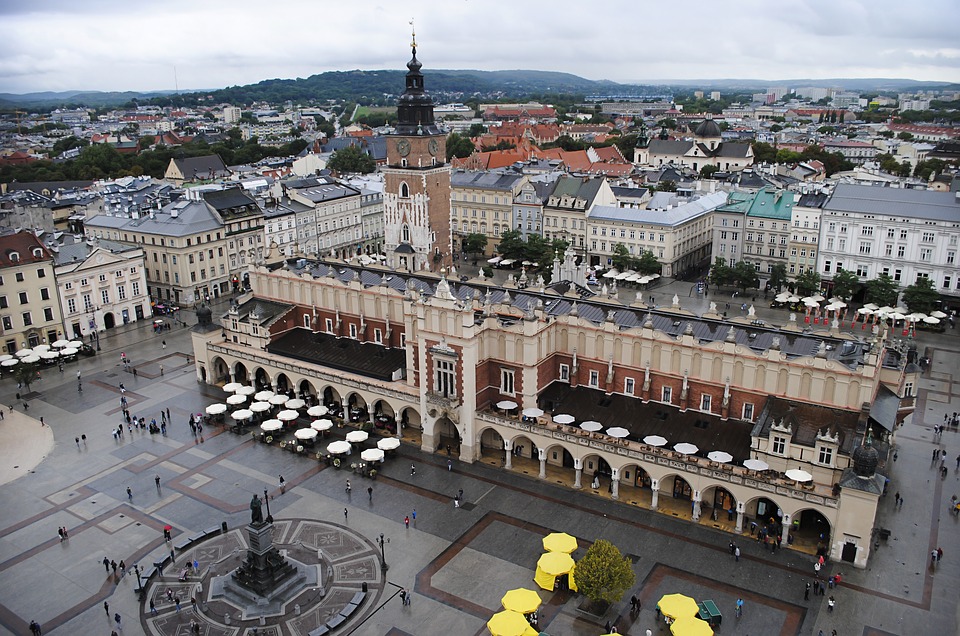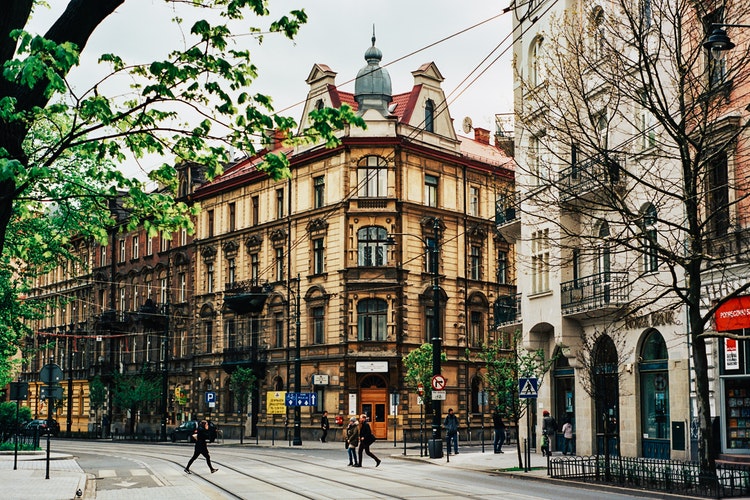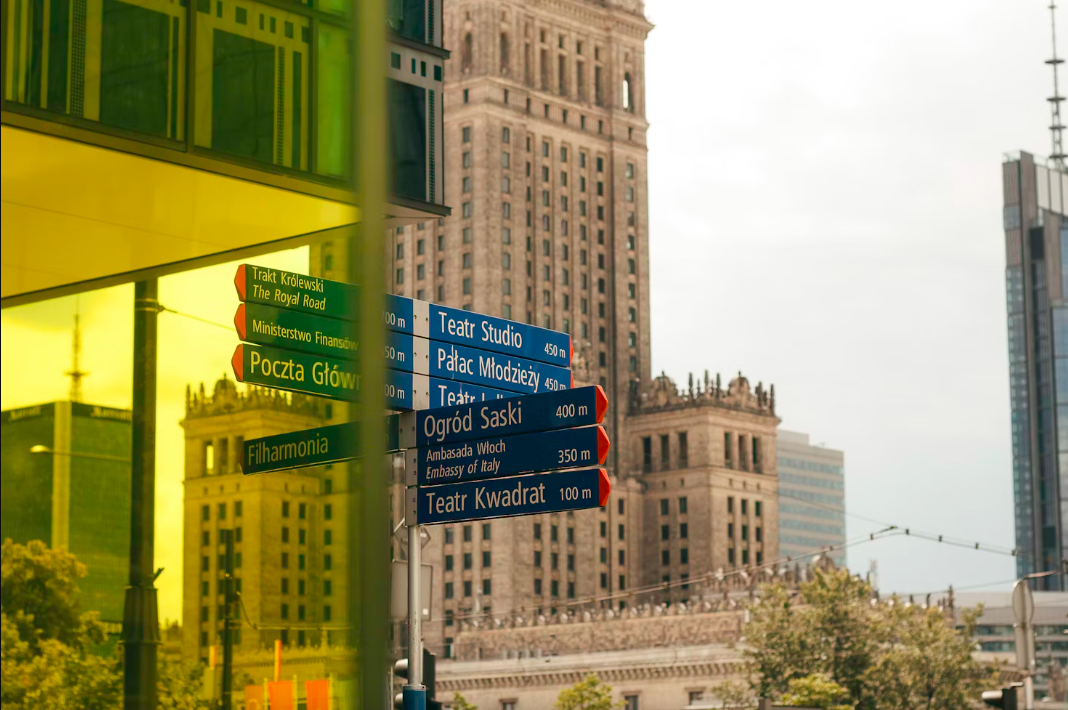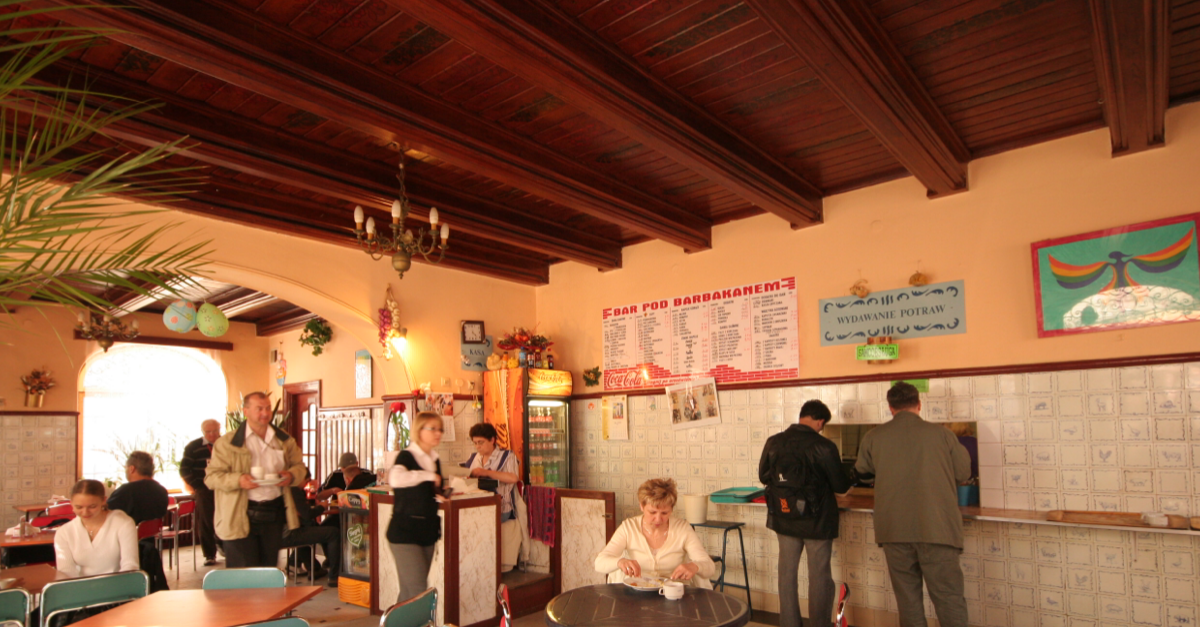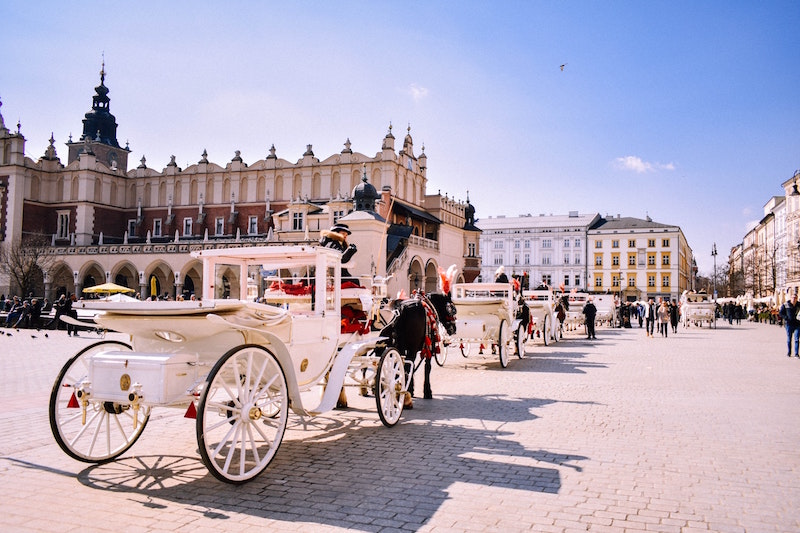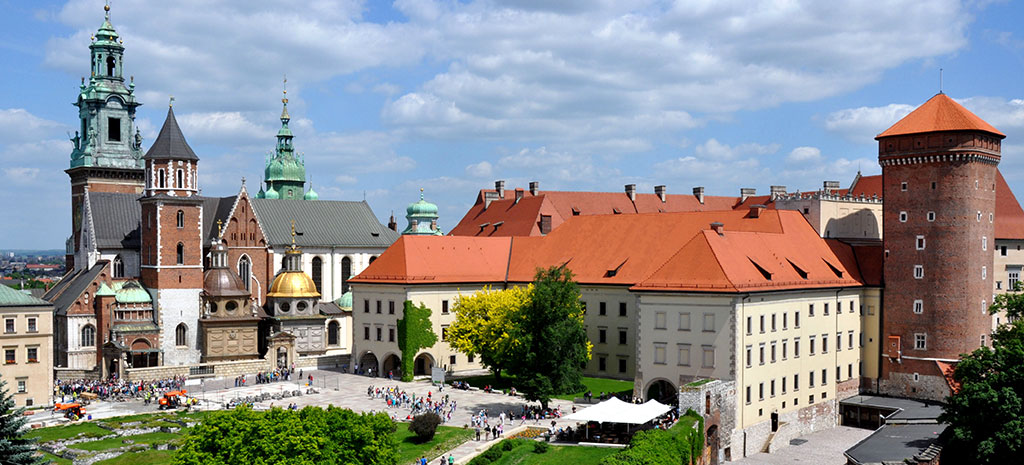
Study in Poland
Last edited on 23 Feb 2026
Selamat datang di Polandia!
Dengan sejarah lebih dari seribu tahun. Polandia kaya peninggalan budaya. Termasuk tradisi di sektor pendidikan tinggi yang memiliki perjalanan panjang, yaitu dengan dibangunnya Perguruan Tinggi pertama di Polandia pada abad ke 14. Polandia kini merupakan salah satu tujuan menimba ilmu yang populer dengan lebih dari 65.000 pelajar Internasional yang belajar di tahun akademik 2016/2017, berupa 62.000 mahasiswa dengan gelar penuh dan 3.000 dengan Program Erasmus.
Polandia salah satu negara dengan sistem pendidikan terbaik di dunia, berdasarkan laporan Pisa OCDE, juga merupakan salah satu negara terluas di Uni Eropa. Memiliki sejarah panjang pendidikan tinggi, Polandia menjadi tuan rumah institusi pendidikan tinggi yang berasal dari abad ke 14. Universitas Jagiellonian di Krakow, berdiri pada tahun 1364, adalah perguruan tinggi peringkat ke dua di Eropa Tengah dan berada di jajaran 100 universitas paling inovatif di dunia.
Bila kamu berencana untuk meraih gelar Sarjana, Master atau Doktor, institusi pendidikan Polandia mempersiapkan banyak pilihan bidang studi. Jangan takut dengan kendala bahasa, karena ada lebih dari 400 program studi berbahasa Inggris di Polandia.
Sistem Pendidikan Tinggi
Polandia adalah tujuan belajar yang populer bagi pelajar internasional dan berdasarkan data statistik UNESCO terakhir negara ini menjadi tuan rumah bagi lebih dari 23.000 mahasiswa. Polandia memiliki 7 perguruan tinggi yang terdapat di Peringkat Pendidikan Tinggi Universitas Dunia versi Times 2016 – 2017 – peringkat tertinggi diraih oleh Universitas Warsawa (501 – 600). Terdapat 121 institusi pendidikan tinggi negara dan 210 institusi pendidikan tinggi swasta di Polandia yang menawarkan beragam mata kuliah dan program. Lulusan Kelas Profesional lanjutan mendapatkan gelar Sarjana Ilmu Pengetahuan atau Sarjana Teknik Mesin (Sarjana Teknik) setelah menyelesaikan studi selama 3 – 4 tahun.
Lulusan dari institusi pendidikan tinggi setara universitas mendapatkan gelar magister (Master of Arts/ Science) atau gelar yang setara bila telah menyelesaikan standar perkuliahan selama 5 Tahun tingkat MA/MSc atau 1,5 hingga 2 tahun tambahan dari tingkat MA/MSc (Ditujukan untuk yang telah gelar Sarjana Ilmu Pengetahuan atau Sarjana Teknik Mesin setelah menyelesaikan kuliah di institusi sejenis perguruan tinggi atau institusi pendidikan profesional lanjutan).
Gelar akademis Doktor (PhD) diberikan kepada mahasiswa yang lulus dari ujian doktor, mengumpulkan dan mempertahankan disertasi doktor (memiliki gelar magister atau setara merupakan sebuah keharusan untuk meraih gelar doktor)
Universities in Poland
Student Cities in Poland
Warsaw
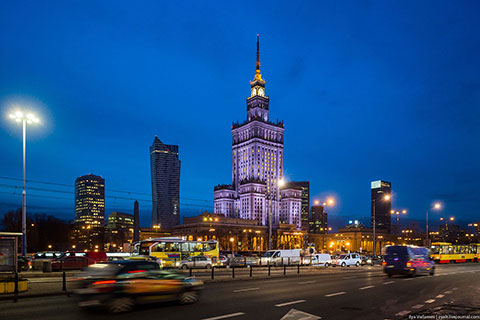
The capital of Poland, Warsaw is also the country’s largest city. It is situated close to the center of the country, on both sides of the river Vistula, and has a distinctive character and spirit. The city was almost completely destroyed during World War II, leading to a large-scale reconstruction project which aimed to recreate much of the original architecture. Its Old Town district, beside the river banks and popular among tourists, is a designated UNESCO World Heritage Site, celebrated as “an outstanding example of a near-total reconstruction of a span of history covering the 13th to the 20th century.”
Aside from its historic center, Warsaw also has a growing collection of skyscrapers, ranging from the residential Złota 44, completed in 2012, to the art deco-inspired Palace of Culture and Science, which dates back to 1955.
There are lots of universities and colleges to choose from in Warsaw, including Poland’s highest-ranked institution, the University of Warsaw, and Warsaw University of Technology, which also features in the QS World University Rankings. The city was a new entry in the QS Best Student Cities 2016 index at joint 63rd.
Krakow
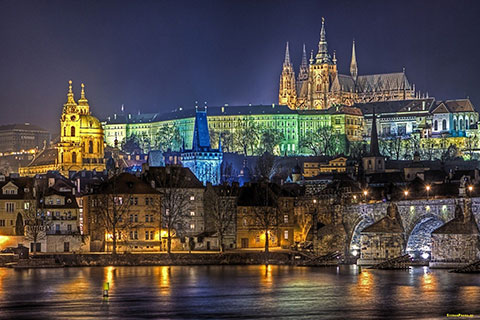
The second largest city in Poland, Krakow is located in the southern part of the country. It served as the Polish capital for five centuries, up to 1569, and remains a major economic, academic and cultural hub. One of the most popular destinations for visitors to Poland, it captivates people from around the world with its splendid historic architecture – which, in contrast to Warsaw, survived WWII largely intact. The city is in some respects an open-air museum of Polish heritage, from Europe’s largest medieval town square and the magnificent gothic Wawel Castle, to art nouveau-style bohemian cafés in which the country’s great artists and thinkers have gathered over the years.
There are about 20 universities and colleges in Krakow, of which just under half are publicly funded, including the oldest and second highest-ranked university in Poland, Jagiellonian University.
Lódź

The third largest city in Poland, Lódź is in the center of Poland, about 130km to the south-west of Warsaw. An important industrial center, particularly during the textiles boom of the 19th century, it’s sometimes nicknamed the “Polish Manchester”, in comparison to the UK’s textiles hub. Today, Lódź has lost its former industrial buzz, but continues to be an attractive business center, due to its central location, good connections and proximity to the capital. Attractions enjoyed by visitors and residents include a good selection of galleries and entertainment venues, and one of the longest commercial high streets in the world. The city is also home to a good selection of higher education institutions, including Poland’s fourth entry in the QS World University Rankings, University of Lódź. Lódź is also EXPO 2022 candidate city.
Other leading university cities include, but are not limited to Wrocław, Poznań, Gdańsk and Toruń, the UNESCO World Heritage gothic town filled with academic vibes, where famous astronomer Nicolaus Copernicus was born.
Application, Fees and Visas in Poland
Mendaftarkan diri untuk belajar di Polandia
Pendidikan tinggi di Polandia berlangsung selama tiga tahun untuk tingkat sarjana (S1) dan satu setengah hingga dua tahun untuk tingkat pasca sarjana. Untuk mendaftar, kamu perlu mempersiapkan bukti kelulusan pendidikan sebelumnya, bersama dengan bukti mahir berbahasa Inggris (kecuali kamu adalah seorang penutur asli). Beberapa kelas perkuliahan akan mewajibkanmu mengikuti ujian masuk atau mempresentasikan portfoliomu. Kamu juga bisa memilih belajar dalam bahasa Polandia, biasanya kamu akan diminta mengumpulkan bukti kemahiran berbahasa Polandia atau mengambil kursus persiapan selama setahun.
Visa pelajar di Polandia
Pelajar internasiaonal yang tidak berasal dari negara – negara Uni Eropa wajib memiliki visa pelajar sebelum tiba di Polandia. Pada hari kedatangan, mereka juga diwajibkan untuk mendaftar ijin tinggal, yang akan berlaku selama dua tahun. Intuk informasi lebih lengkapnya hubungi Kedutaan Polandia yang ada di negaramu atau kunjungi situs Departemen Luar Negeri Polandia.
Biaya dan pendanaan untuk Visa di Polandia
Warga negara Polandia tidak dipungut biaya pendidikan tinggi. Bila kamu ingin mendapatkan keuntungan serupa, kamu harus mengikuti ujian masuk seperti pelajar Polandia lainnya dan mengambil kursus bahasa Polandia. Pelajar internasional diwajibkan membayar biaya pendidikan, yang besarnya berkisar antara EUR 2,000 – 3,000 per tahun dila belajar di Universitas Negeri Polandia. Biaya di perguruan tinggi swasta lebih tinggi, tergantung pilihan mata kuliah dan institusinya, biaya yang diperlukan bisa mencapai EUR 6,000 dalam setahun.
Harap diingat beasiswa yang ditawarkan untuk pelajar asing relatif sedikit, jadi pada umumnya kamu harus membiayai kuliah secara mandiri. Tapi, kamu bisa mencoba memeriksa universitas pilihanmu untuk memastikan kemungkinan pendanaan yang ada.
Biaya hidup di Polandia
Biaya hidup di Polandia merupakan salah satu yang terendah di Uni Eropa, namun tentu saja disesuaikan dengan gaya hidup dan kota pilihanmu. Kamu mungkin akan membutuhkan biaya setidaknya sejumlah 1,500 - 2000 PLN (~EUR 355 - 473) setiap bulan untuk memenuhi kebutuhan hidupmu, termasuk akomodasi. Biaya akomodasi bervariasi dari PLN 400 – 600 (~EUR 95 – 142) untuk asrama, atau PLN 1,000 – 1,600 (~EUR 237 – 380) untuk kost per bulan. Biaya makan PLN 500 (~EUR 120), buku dan hiburan around PLN 150 – 200 (~EUR 36 – 47), dan biaya transportasi local PLN 65 (~EUR 15) per bulan.
Setiap mahasiswa wajib memiliki asuransi kesehatan selama belajar di Polandia. Pelajar dari Uni Eropa berhak mendapatkan biaya pengobatan gratis atau diskon bila dapat menunjukkan Kartu Asuransi Kesehatan Eropa (EHIC), sedangkan pelajar selain dari Uni Eropa disarankan untuk membeli asuransi kesehatan baik sebelum ataupun secapatnya setiba mereka di Polandia. Pelajar asing juga disarankan untuk membeli asuransi pertanggunngan pihak ke tiga dan asuransi kecelakaan.
Fakta Singkat:
- Ibu kota: Warsawa (Juga kota terluas)
- Popilasi: sekitar 38.4 juta
- Luas wilayah: 312.685 km2
- Letak: Eropa Tengah
- Perbatasan: Belarus, Republik Czech, Jerman, Lithuania, Rusia, Slovakia, Ukraina dan laut Baltik
- Bentuk pemerintahan: Republik Parlementer dengan presiden dan perdana menteri terpilih.
- Mata uang: zloty (PLN)
- Waktu local: GMT +1
- Simbol nasional: Elang ekor putih
Here, we give you reasons why Poland should own the first place of your destination country list for study. Tradition: Longstanding traditions in the higher education sector, with the first university in Poland founded in 1364. With a history dating back which Poland already teaching students for over 650 years, Poland’s cultural heritage is incredibly rich.
Today, 46,000 international students choosing to study in Poland (2014-2015). Competitive cost of living and studying: Relatively low living costs, which remain below those of most EU members. In a matter of fact, with only 3000 Euro tuition fee per year plus 250 Euro per month for living cost become the appealing aspect for many of those who choose to study in Poland. Poland offers scholarships to students funded by the government, various foundations and the higher education institution or universities themselves. They are available to in-country students, disabled applicants as well as to international students both from within the EU or non-EU. The high number of institutions that offer scholarships and their fluid availability added the uniqueness of this country.
Stefan Banach Scholarship Program
Focus Scholarship: Master and PhD
Competition: Developing Countries
Scholarship Coverage: Partial Scholarship
This year, the existing scholarship programmes that are a joint initiative of the Ministry of Foreign Affairs and the National Agency for Academic Exchange NAWA in the form of Polish development aid, i.e. the Banach Scholarship Programme and the Lukasiewicz Scholarship Programme, are merged into one scholarship programme for young people from developing countries who wish to take up studies in Poland.
The objective of the Programme is to promote socio-economic progress of developing countries by raising the level of knowledge and education of their citizens in the form of scholarships for second-degree studies in Polish or in English at Polish universities supervised by the Minister of Education and Science in the field of engineering and technical sciences, agricultural sciences, exact sciences, and life sciences.
The NAWA scholarship may be applied for by citizens of the following countries: Albania, Angola, Argentina, Armenia, Azerbaijan, Belarus, Bosnia and Herzegovina, Brazil, Colombia, Ethiopia, Georgia, India, Indonesia, Iraq, Iran, Jordan, Kazakhstan, Kenya, Kosovo, Lebanon, Mexico, Moldova, Montenegro, Nigeria, North Macedonia, Palestine, Peru, the Philippines, Senegal, Serbia, South Africa, Tanzania, Tunisia, Ukraine, Uzbekistan, and Vietnam.
In addition, the citizens of Albania, Armenia, Azerbaijan, Belarus, Bosnia and Herzegovina, Georgia, Kazakhstan, Kosovo, Montenegro, Moldova, North Macedonia, Serbia, Ukraine, and Uzbekistan can complete second-degree studies in the fields of humanities and social sciences under the Programme, with the exception of philological studies in the field of the beneficiary’s native language.
Criteria
- Master degree application should be sent to Embassy of the Republic of Poland in Jakarta while the PhD application should be sent directly to targeted university






